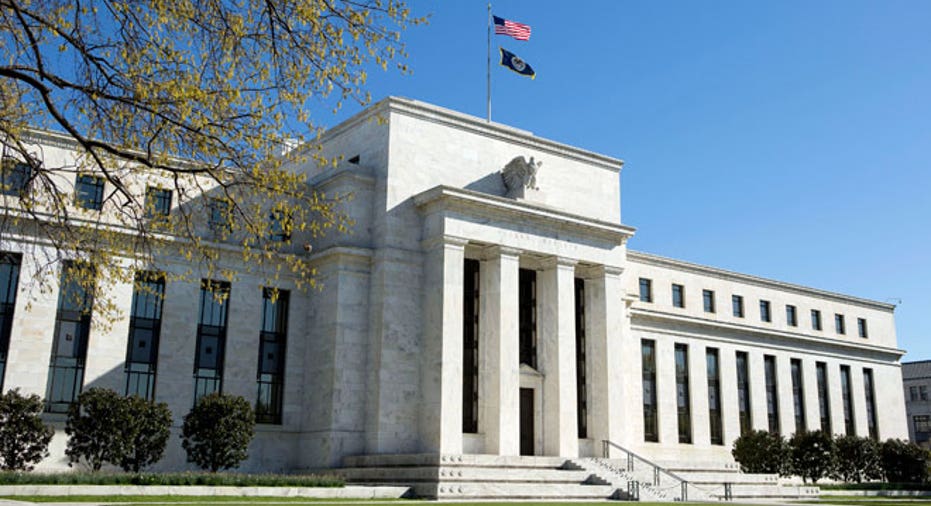Fed Expected to Maintain Activist Ways

With the economy still struggling and a 'fiscal cliff' hovering, the Federal Reserve is expected to continue its activist policies this week at its final two-day meeting of 2012.
Specifically, members of the Federal Open Market Committee, which sets most Fed policy, are likely to announce a bond purchasing program that will replace Operation Twist, which began in the fall of 2011 and was extended earlier this year because central bankers believed the economy needed the stimulus.
The Fed will announce any new policies on Wednesday afternoon at the conclusion of its two-day meeting. Fed Chairman Ben Bernanke will hold one of his semi-regular press conferences shortly after the announcement.
Operation Twist authorized the Fed to shift -- or twist -- its portfolio toward long-term securities by purchasing $45 billion in long-term Treasury bonds each month, while at the same time selling short-term notes. The idea was to give the economy a boost by pushing down long-term interest rates on products such as mortgages, making it easier for consumers to make big purchases.
This time around, the Fed is expected to allow Operation Twist to expire in its current form at the end of the year, primarily because the Fed reportedly has run out of short-term notes to sell. So the twisting will be over.
But while the sale of short-term notes will end the purchase of long-term Treasuries will continue, analysts believe.
The new purchases, likely to remain at around $45 billion per month, will continue to supplement the monthly purchases of $40 billion in mortgage-backed securities initiated in September under the Fed's latest round of quantitative easing, also known as QE3.
"We expect the Fed to augment QE3 with additional long-term Treasuries purchases to offset the de facto policy tightening that would be caused by the end of Operation Twist," said IHS Global Insight economists Nigel Gault and Paul Edelstein in a research note.
Some economists have even dubbed the widely-expected new purchases QE4.
Deep Reservations
In September, with unemployment above 8% and tens of thousands of Americans leaving the workforce each month in despair of finding a job, the Fed announced QE3, which directly targeted the housing market. By targeting mortgage-backed securities, the Fed hoped to generate demand for homes by pushing mortgage rates even lower than the historically low levels at which they stood in the fall.
A rejuvenated housing market would stimulate a number of important sectors, including construction, lending and retail, creating much-needed jobs along the way.
That's how Bernanke described the thought process which led the Fed to approve QE3.
While the unemployment rate has continued to fall since QE3 was announced, dipping to 7.7% in November, the signs remain mixed. Many of the new jobs used to help bring the rate down are part-time or temporary, and many workers continue to drop out of the workforce because job prospects are slim.
The housing market has shown signs of improvement recently, with prices ticking higher in many areas of the country, a sign that demand is picking up. But the overall feeling is that the U.S. economy is still slumping, and if history is any indication the Fed won't be standing pat on Wednesday.
Another new policy option being considered by the Fed is economic 'targets' for determining when fiscal policy should be tightened by raising interest rates. Rates have been at an historically low range of 0.0%-0.25% since December 2008 and central bankers have promised to keep interest rates low well into 2015.
Sentiment has risen in recent months for a policy under which rates would go up when the unemployment rate hits a specific threshold, 6% for example, or if inflation rose to a certain level. That initiative is fairly new to the debate, however, and the Fed could hold off on it until the new year.
Of course, not everyone agrees with the Fed's strategy of stimulating the economy through bond purchases and keeping interest rates low.
"Many economists have deep reservations about the path the Fed is pursuing. As a matter of mathematics, because households have more interest-bearing assets than interest-paying assets and because roughly two-thirds of those liabilities are fixed-rate mortgages, a policy of gradually raising interest rates would actually put more money into the household sector than the current policy of holding them low," David Kelly, chief global strategist at J.P. Morgan Funds, wrote in a research note.
"Bluntly, an-over easy policy may now actually be slowing economic growth rather than boosting it," Kelly added.



















